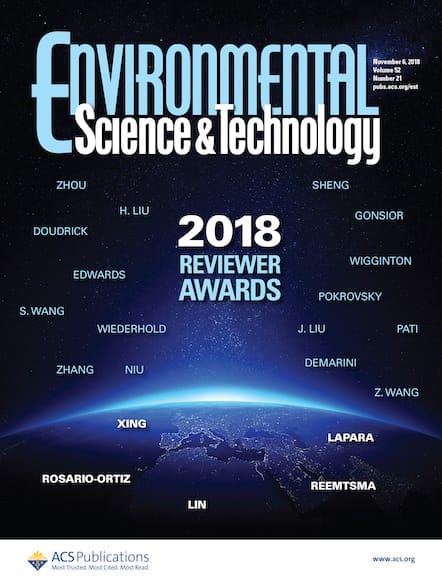Next month, Dr. David Sedlak will try to enter the record books by making an official attempt at the GUINNESS WORLD RECORDS™ title for the Largest chemistry lesson during the 254th ACS National Meeting & Exposition. The Editor-in-Chief of Environmental Science & Technology and Environmental Science & Technology Letters will deliver his record-breaking lecture, “Healthy, […]

Next month, Dr. David Sedlak will try to enter the record booksby making an official attempt at the GUINNESS WORLD RECORDS™ title for the Largest chemistry lesson during the 254th ACS National Meeting & Exposition. The Editor-in-Chief of Environmental Science & Technology and Environmental Science & Technology Letters will deliver his record-breaking lecture, “Healthy, Tasty, or Toxic: A Chemist’s View of Drinking Water” at 10 a.m. on August 21 in Ballroom A/B of the Washington Convention Center. Register your interest in the meeting now and learn about the unique t-shirt you’ll get for attending.
Find out about Dr. Sedlak’s research and his lecture:
***
What can attendees expect to learn during your special lecture at the ACS National Meeting?
Dr. David Sedlak: Drinking water is so familiar that we take it for granted. Given the many threats to the systems that provide us with inexpensive, safe and palatable drinking water it is important for scientists and citizens to understand the chemistry of drinking water. In this lecture, I will provide an overview of some of the key issues that society will face in the coming decades as we seek to assure that our drinking water will remain healthy, tasty and free of toxic contaminants.
What do you wish more people understood about the chemistry of drinking water?
Dr. David Sedlak: Any source of water on earth can be made safe to drink. It’s just a matter of applying simple chemical principles and a little ingenuity to remove the impurities that the water contains.
How did you become interested in drinking water as an area of study?
Dr. David Sedlak: As a teenager, I became concerned about the way that the careless use of chemicals was affecting people and wildlife. This influenced my decision to study science in college. As an undergraduate, I studied many subjects but chemistry seemed like the discipline that was most relevant to solving these problems. As a result, I chose to study water chemistry in graduate school. As a graduate student and postdoc, I had many interests related to environmental chemistry, but it wasn’t until I moved to Berkeley that I became interested in drinking water. Living in a state where water has always been a limited resource I became intrigued by the myriad of ways that we can acquire and treat drinking water.
What can chemists do to increase awareness and improve the level of discourse around important topics like drinking water safety?
Dr. David Sedlak: Chemists have an important role to play in drinking water. In addition to training the next generation of drinking water chemists and supporting the engineers who will invent new water treatment technologies, chemists play an important role in preventing pollutants from reaching our water supplies. We need to redouble our efforts to use chemicals responsibly and to develop chemicals that are less toxic or that will degrade before they reach our water supplies.
What public speaking advice would you give to younger scientists addressing a crowd for the first time? What makes a scientific talk great?
Dr. David Sedlak: It doesn’t matter how many talks you give, we all get butterflies in our stomachs during the first few minutes of a talk. Just remember that the audience didn’t come to see you fail. They want to hear what you have to say and they want to enjoy your talk. Help them out by channeling your passion about the research into the talk. After your passion takes over the butterflies in your stomach will fly away and you’ll be ready to succeed.
***
